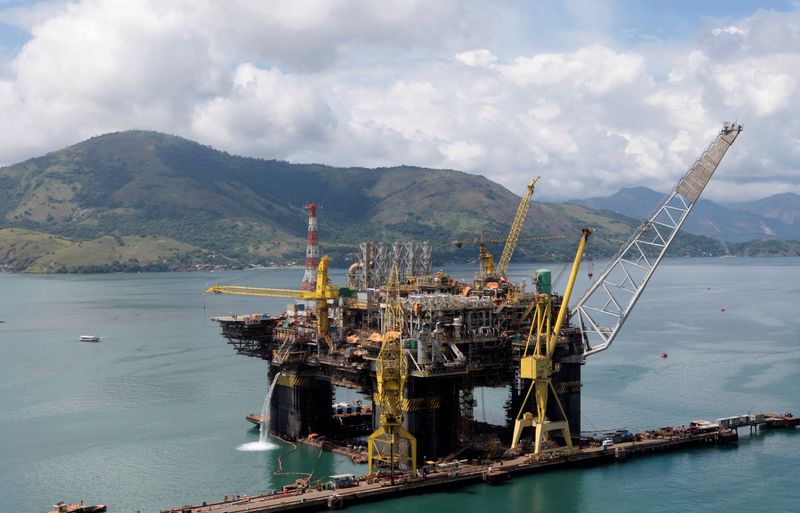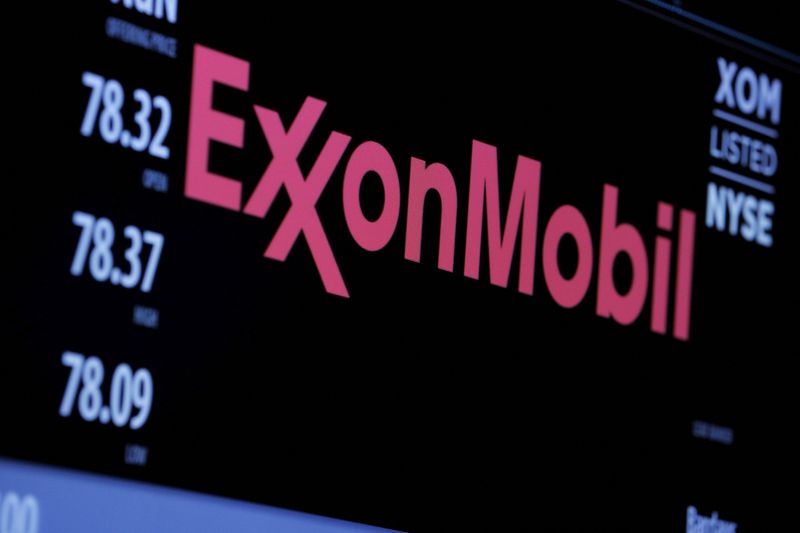By Sabrina Valle
HOUSTON (Reuters) - Exxon Mobil Corp (NYSE:XOM) is prepared to bid on Friday for new blocks in Brazil's deep-water oil fields, a focus area for its oil and gas production growth, people familiar with the matter said.
Any bid would mark its first big investment since it decided to resume spending after a historic, $22.4 billion annual loss in 2020. The auction could see more than one consortium emerge with 11 companies registered to participate. Others signed up include Royal Dutch Shell (LON:RDSa), TotalEnergies and Chevron (NYSE:CVX).
If both fields on offer are awarded, they could raise Brazil output by 12% and bring in almost $40 billion in investment over the next decade, Brazil's Energy Ministry said on Monday. State-oil firm Petroleo Brasileiro, which made the discoveries, would receive $6.2 billion for past investments.
Exxon has held meetings with Petrobras as recently as last week over a potential partnership to develop Sepia and Atapu that would have Petrobras as operator and Exxon as a large stake holder, the people said. A subsidiary of Portugal's Galp Energia, Petrogal, also is weighing a minority partnership in a 3-way deal, the people said.
Exxon declined to comment, citing business strategy reasons. Petrobras and Petrogal did not comment.
A new Petrogal partnership with Petrobras would extend their existing relationship at the nearby Sepia East oilfield, said Marcelo De Assis, head of Latin America Upstream Research at consultancy Wood Mackenzie.
People close to the negotiations said a second consortia, without Petrobras participation, also could bid for the Sepia field.
Shell, TotalEnergies and Petrogal would be "the top candidates" for the smaller, Atapu block as they already have developed an adjacent area with Petrobras, Assis said.
SECOND BITE AT AUCTION
This is the second time Septia and Atupu are on offer. They were put for sale in 2019 in an auction Exxon was prepared to bid for a 45% stake in the main block, called Buzios - in partnership with Petrobras, said the people who declined to be identified because the information is not public.
Buzios today is producing about the same volume as Venezuela. Exxon dropped out of that auction over uncertainty on total required spending, leaving Petrobras to absorb billions of dollars of investments, the people said.
The Exxon spokesperson declined to comment on the 2019 auction.

This time around, Brazil has reduced its licensing fees for Sepia and Atapu by 70%, to around $2 billion. A winner will be chosen based on the amount of future production the consortium is willing to share with the government.
The auction grants Petrobras first right of operatorship with a 30% stake in both fields even if its consortia is outbid. Petrobras would have 30 minutes to decide whether it wants to join the winning group and operate the assets.
